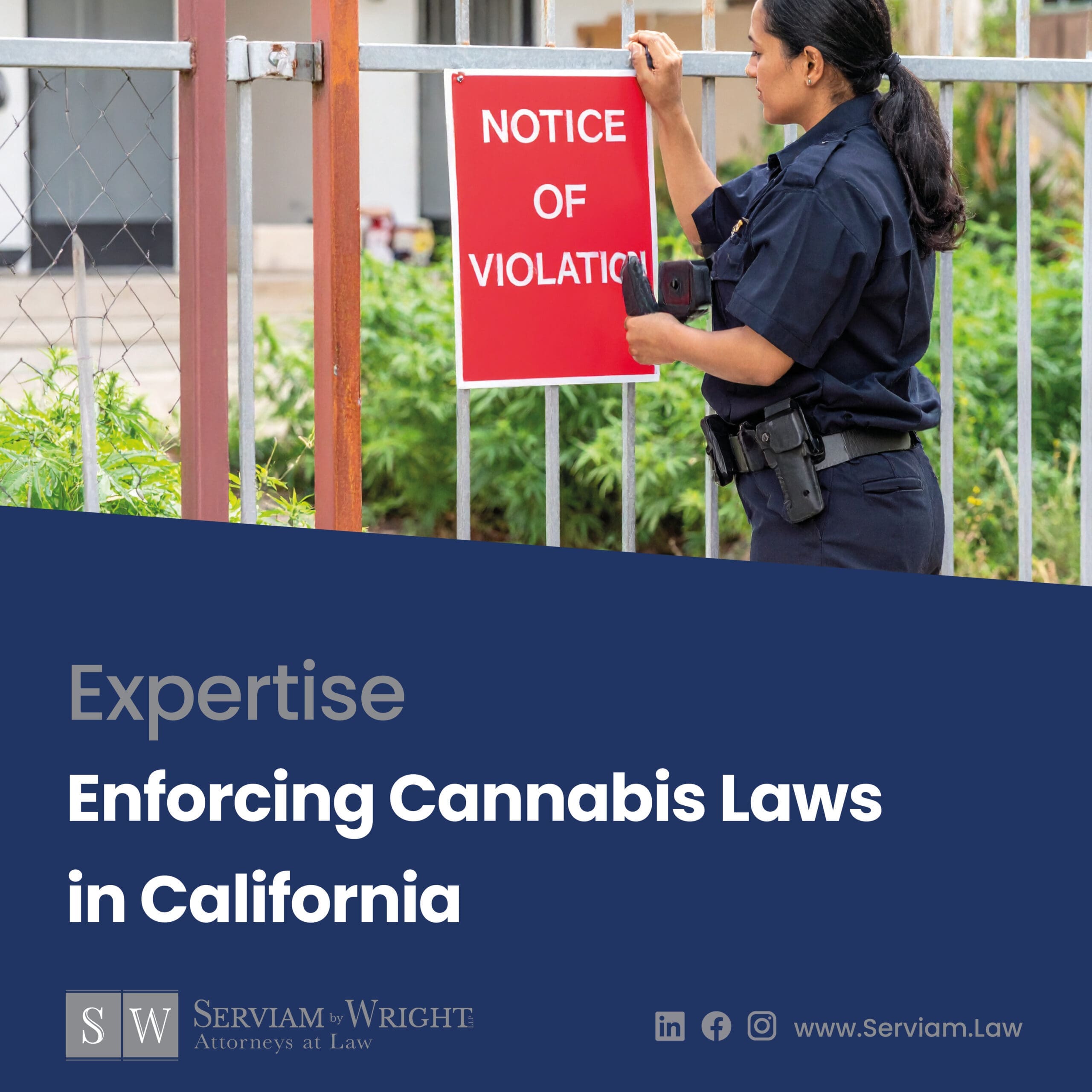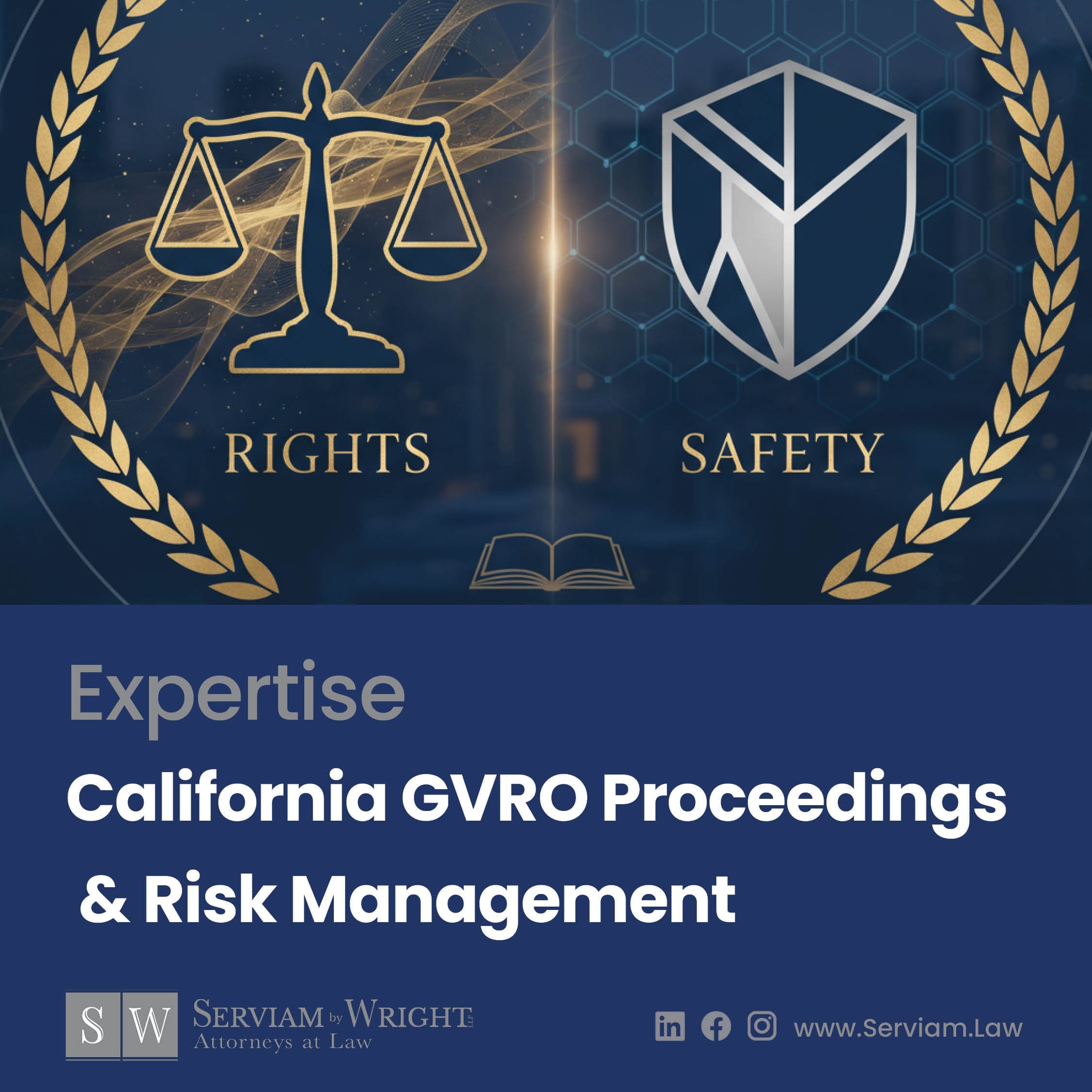California’s approach to cannabis has evolved dramatically over the past three decades—from the Compassionate Use Act of 1996 to the Adult Use of Marijuana Act (Prop 64) in 2016, and now the comprehensive Medicinal and Adult-Use Cannabis Regulation and Safety Act (MAUCRSA). Despite these changes, cannabis remains a Schedule I controlled substance under both federal and California law, and public agencies continue to face the complex challenge of enforcing against unlawful cannabis activity.
At Serviam, we help public agencies navigate this ever-changing legal landscape, protecting communities from unlawful cultivation, distribution, and nuisance activity.
Administrative Code Enforcement
Local governments have broad authority to regulate cannabis businesses within their jurisdiction. Cities and counties may:
- Ban or restrict dispensaries and commercial cannabis activity.
- Require local permits, licenses, and compliance with zoning and building codes.
- Tax permitted commercial cannabis activity.
- Enforce administrative citations for illegal cultivation.
Our team works closely with code enforcement officers to prepare strong administrative records—ensuring notices, inspections, and citations withstand appeal and court scrutiny.
Civil Code Enforcement
Even where criminal penalties may not apply, public agencies can use civil remedies to protect neighborhoods. For example:
- California’s Drug Abatement Act allows cities to declare any property used for unlawful controlled substances activity—including cannabis—a public nuisance. Courts must order such activity enjoined, abated, and prevented.
- Cities may pursue civil injunctions, cost recovery, and even court-appointed receiverships to rehabilitate properties plagued by unlawful cannabis use or cultivation.
Serviam regularly represents agencies in nuisance abatement actions, obtaining enforceable court orders to restore compliance and protect the community.
Criminal Code Enforcement
Despite legalization for limited medical and recreational use, certain cannabis activities can be criminally banned locally and remain criminal offenses under State law. Examples include:
- Unlawful cultivation or possession beyond permitted amounts.
- Unlicensed sales or distribution.
- Public consumption or sales to minors.
- Cannabis-related DUI offenses.
Our attorneys advise public agencies on the interplay between State and federal law, helping them pursue criminal remedies where appropriate.

Serviam Is Your Partner in Achieving Compliance and Safeguarding Neighborhoods
Enforcing cannabis laws requires balancing community safety, public health, and evolving State regulations. Serviam’s attorneys bring deep expertise in administrative, civil, and criminal enforcement, helping public agencies choose the most effective path for each case. Whether through administrative citations, nuisance abatement, or prosecution support, we partner with our clients to achieve compliance and safeguard neighborhoods.
This article should not be interpreted as legal advice; please contact a Serviam attorney for a consultation if you need legal advice about a specific matter. For more information about this article, contact Curtis Wright at Wright@Serviam.Law.





